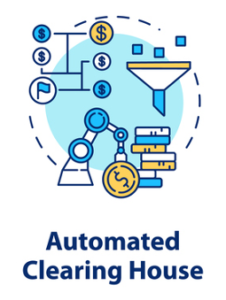Online learning is here to stay. Online course offerings are growing at a rapid pace, not only giving students more options but also allowing them to be more flexible in their schedules. This can be a great opportunity for many students, but only if they take the proper steps to ensure the courses meet their needs and expectations.
Traditional education entails a student’s physical presence in a classroom, which may be an inconvenience. Online education, on the other hand, does not require a student to travel to school. The cons of online learning include a lack of motivation and self-discipline, as well as compromise and time. Even though many students have expressed a positive attitude towards online education, they acknowledge that it is not without its drawbacks.
Pros and Cons of Online Learning in 2022
As technology continues to progress and new ways of delivering education emerge, many educators are approaching online learning with mixed enthusiasm. Some are skeptical about the benefits of online education, while others are excited about the potential for improving teaching methods and providing students with unprecedented learning experiences. In either case, considering the benefits and drawbacks of online education is an important step in preparing for the challenges and opportunities that lie ahead. Here are some of the main benefits and drawbacks of online education.
Pros of online learning
Online learning has many advantages and disadvantages. It can be difficult to think of the cons of online learning when you are a student who is looking for an easy way to get the education they need, but there are some things you should keep in mind.
There are many advantages to online learning. For one thing, it’s convenient. You can take courses at your own pace and on your own schedule, which means you can work on assignments when it’s most convenient for you—even if that means late at night or early in the morning. When you have a busy schedule, this is a huge benefit.
Another advantage of online learning is that it can help you save money. With online classes, you don’t have to pay for transportation or parking fees, or spend money on textbooks—all of which can really add up over time!
Online learning also allows students to connect with their professors through email and other forms of communication like Skype or Google Hangouts. This makes it easy for students to get answers when they have questions during an assignment or exam—and no one wants that stress added into their lives!
Cons of online learning
Online learning is a great way to learn at your own pace, with the flexibility of your schedule. However, there are some downsides to online learning as well. Although the online classroom environment is easier to manage and there are fewer rules to follow, online students may feel less motivated to complete their classes. Regardless, online education is a great way to earn a degree when you cannot attend in-personn classes.
Another disadvantage is that you may not receive any hands-on training when taking a course online. In some cases, you may even be required to purchase equipment or software that is not provided by the school.
Many people also believe that online courses do not provide as much value as traditional courses because they do not allow students to interact with one another or their instructors.
The online classroom requires computer software and high-speed internet. The time spent online is often more sporadic, and the digital interactions can be a target of malicious attacks. Some are intended to disrupt events and harass learners, but some are unintended consequences of poor prevention measures. In addition, students may feel unsafe learning online, which reduces their teaching efficacy. Some online courses require students to adjust their schedules around due dates, which can be a major problem for international students who live in different time zones.
How to optimize your online learning experience
Here are some ways you can optimize your online learning experience:
- Choose a course that fits your needs and schedule. Be sure to consider the number of hours you want to dedicate to the course and how much time you have available on a weekly basis. Also, look for courses that align with your interests or career goals.
- Find a good instructor. Some people prefer face-to-face classes, while others prefer online ones because they don’t need to leave their house or office during work hours if they’re already sitting at their desk anyway! However, both types of teachers have their pros and cons—so make sure you know what kind of teacher suits your needs before signing up!
- Join a study group or meetup group so that you can connect with other classmates who share similar interests (or frustrations!) as well as get help from other students who may have already taken the class before or who have more experience studying in general than those who just started out fresh like yourself.
- The flexibility of online learning can be attractive, but too much freedom can create distractions. When it comes to your time, structure it accordingly. Add important due dates to your calendar and close irrelevant browser windows. Turn off the television when you’re working online to avoid interruptions. You can also try using scenario questions to engage students in the learning process. For instance, if you want them to apply their technical knowledge, ask them to develop a group presentation. This technique is a great way to maintain the pace of learning and retain information.








